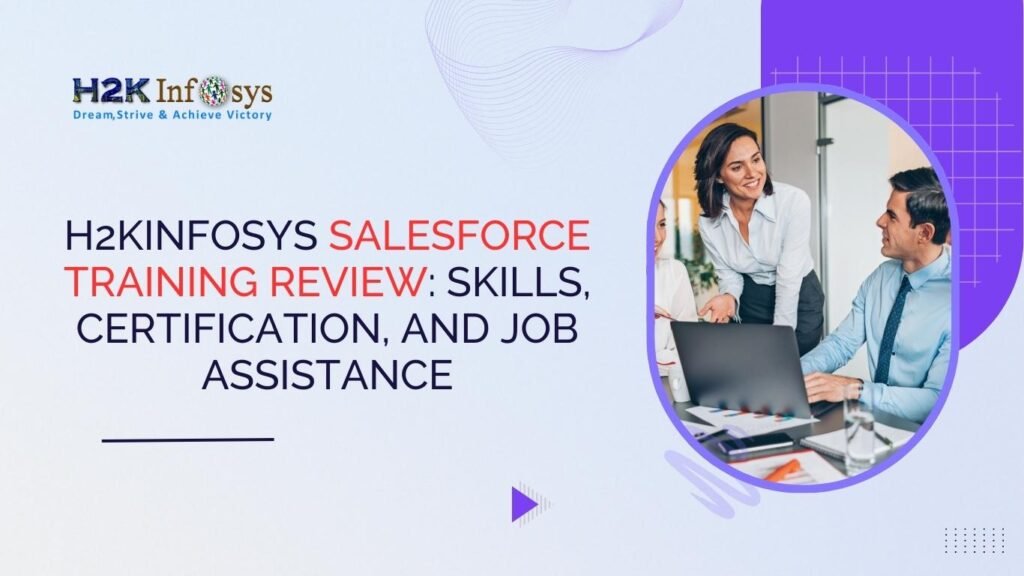Introduction:
In today’s fast-paced IT industry, DevOps has become a must-have skillset. Whether you’re aiming to become a DevOps engineer, cloud automation specialist, or site reliability engineer, earning a certification can open the doors to high-paying, future-proof tech jobs. But preparing for DevOps Certification exams isn’t just about memorizing concepts, it’s about building practical skills through hands-on DevOps training and certification programs.
So, how do you effectively prepare for a DevOps Certification exam? This guide provides a complete roadmap, from choosing the right DevOps training online to acing your DevOps Certification exams with confidence.
Why DevOps Certification Matters in 2025
The DevOps job market is thriving. According to recent studies, the global DevOps market is expected to reach $25.5 billion by 2028, growing at a CAGR of over 20%. Organizations across industries are hiring professionals with DevOps certification Exams to improve deployment frequency, reduce failure rates, and speed up product delivery.
Top reasons to earn DevOps certification:
- Demonstrates verified skills to employers
- Enhances your resume with industry recognition
- Improves job prospects and salary potential
- Builds confidence in using DevOps automation tools
With the rise of DevOps online training and DevOps bootcamp online options, preparing for DevOps Certification exams has never been more accessible.
Step 1: Choose the Right DevOps Certification
Before diving into prep, pick a certification that aligns with your career goals. Some popular DevOps Certification exams include:
| Certification | Focus Area |
|---|---|
| Foundation-Level DevOps | Concepts, collaboration, basic automation |
| Intermediate-Level (e.g., CI/CD pipelines) | Tools, scripting, deployments |
| Advanced DevOps Engineer | Real-time system management, cloud-native DevOps |
Ensure your DevOps course online prepares you for the exact certification you’re targeting. Look for a curriculum that includes DevOps automation tools, CI/CD pipelines, monitoring, and containerization.
Step 2: Enroll in the Best DevOps Training Online
To succeed, self-study is rarely enough. Structured DevOps training with placement provides mentorship, direction, and practical labs to help you pass your DevOps Certification exams.
What to look for in DevOps training with placement:
- Live instructor-led classes
- Hands-on labs using Docker, Jenkins, Ansible, Kubernetes
- Real-time project work for applied learning
- Mock exams and interview prep
- Flexible schedule to fit your pace
At H2K Infosys, our DevOps training online is designed to cover foundational and advanced topics with live projects and expert guidance.
Step 3: Master Core DevOps Concepts and Tools
To pass DevOps Certification exams, you need to master both theory and tools.
1. DevOps Lifecycle
Understand the flow from planning to monitoring:
- Plan: Agile practices, sprint planning
- Develop: Source control, Git
- Build: Maven, Gradle, Build tools
- Test: Automated testing, Selenium
- Release: Continuous integration and delivery
- Deploy: Infrastructure as code
- Operate: Configuration management
- Monitor: Application performance monitoring tools
2. Popular DevOps Tools
Here are some tools you must get comfortable with:
| Category | Tools |
|---|---|
| Source Control | Git, GitHub |
| CI/CD | Jenkins, GitLab CI |
| Containers | Docker |
| Orchestration | Kubernetes |
| Configuration Management | Ansible, Puppet |
| Monitoring | Nagios, Prometheus |
| Cloud Platforms | AWS, Azure, GCP (for cloud-native DevOps) |
Hands-on training with these tools is essential. That’s why the best DevOps training online includes practical labs with Dockerfiles, Kubernetes manifests, and Jenkins pipelines.
Step 4: Follow a Structured DevOps Study Plan
Use this weekly planner to build your readiness over 8–10 weeks:
Weeks 1–2:
- Study DevOps basics: Agile, version control, lifecycle
- Practice Git workflows and repository management
- Watch intro videos or attend live DevOps classes
Weeks 3–4:
- Learn and implement CI/CD with Jenkins
- Build sample pipeline (build → test → deploy)
- Get hands-on with Docker (create containers, run apps)
Weeks 5–6:
- Study configuration management with Ansible
- Deploy sample playbooks on virtual machines
- Explore orchestration with Kubernetes clusters
Weeks 7–8:
- Set up monitoring and logging with tools like Prometheus and Grafana
- Explore cloud automation (e.g., provisioning with Terraform)
- Take mock DevOps Certification exams
Pro tip: Stick to one tool per week to avoid overwhelm and reinforce learning through repetition.
Step 5: Take Practice Tests and Work on Real Projects
Practice tests help you understand exam patterns and assess your preparation level. Most DevOps certification exams are scenario-based, so focus on problem-solving.
Where to find practice:
- Course-provided mock exams
- Community forums and DevOps study groups
- Real-time project assignments in your training
Project Example:
Create a CI/CD pipeline for a sample app:
- Use GitHub for code versioning
- Build with Jenkins
- Deploy to a Docker container
- Monitor with Prometheus
Working on these projects simulates the environments used in DevOps Certification exams and interviews.
Step 6: Use Study Materials That Match Your Learning Style
Everyone learns differently. Use a mix of:
- Visual aids: Diagrams showing the CI/CD pipeline
- Text-based notes: PDF study guides, certification outlines
- Video tutorials: Recorded sessions of DevOps bootcamp online
- Code practice: Write Dockerfiles, Ansible playbooks, Jenkins scripts
Here’s an example of a basic Jenkins pipeline:
groovypipeline {
agent any
stages {
stage('Build') {
steps {
echo 'Building...'
}
}
stage('Test') {
steps {
echo 'Running tests...'
}
}
stage('Deploy') {
steps {
echo 'Deploying...'
}
}
}
}Practice pipelines like this until you can write and troubleshoot on your own.
Step 7: Join DevOps Communities and Forums
Join DevOps forums and communities to:
- Discuss questions
- Share code snippets
- Get feedback on projects
- Stay updated with DevOps trends
Learning from peers is one of the fastest ways to accelerate your DevOps journey.
Some popular community spaces:
- Reddit r/devops
- LinkedIn groups focused on DevOps careers
- DevOps webinars and online meetups
Step 8: Stay Consistent and Focused
Certification success is a result of consistent, focused effort. Allocate fixed daily or weekly study hours. Remove distractions during your study time.
Tips to stay motivated:
- Set weekly goals (e.g., “complete Docker lab by Friday”)
- Track your progress in a spreadsheet or app
- Reward yourself after milestones
Remember: It’s not about cramming — it’s about building real, usable skills.
Key Takeaways
- DevOps Certification exams are essential for advancing in cloud and automation roles
- Enroll in a comprehensive DevOps training and certification course with real projects
- Focus on hands-on experience with DevOps automation tools like Jenkins, Docker, and Kubernetes
- Follow a structured 8-week plan with consistent study time
- Take mock exams and work on real-world CI/CD pipelines
- Use multiple learning resources to reinforce concepts
- Join online communities to stay engaged and updated
Conclusion: Start Your DevOps Journey Today
Don’t wait to upskill — enroll in H2K Infosys’ DevOps training online to gain hands-on experience and prepare for certification with expert guidance. Build the skills that employers are actively hiring for.
Ready to get certified? Join H2K Infosys and start your DevOps journey with confidence!


























